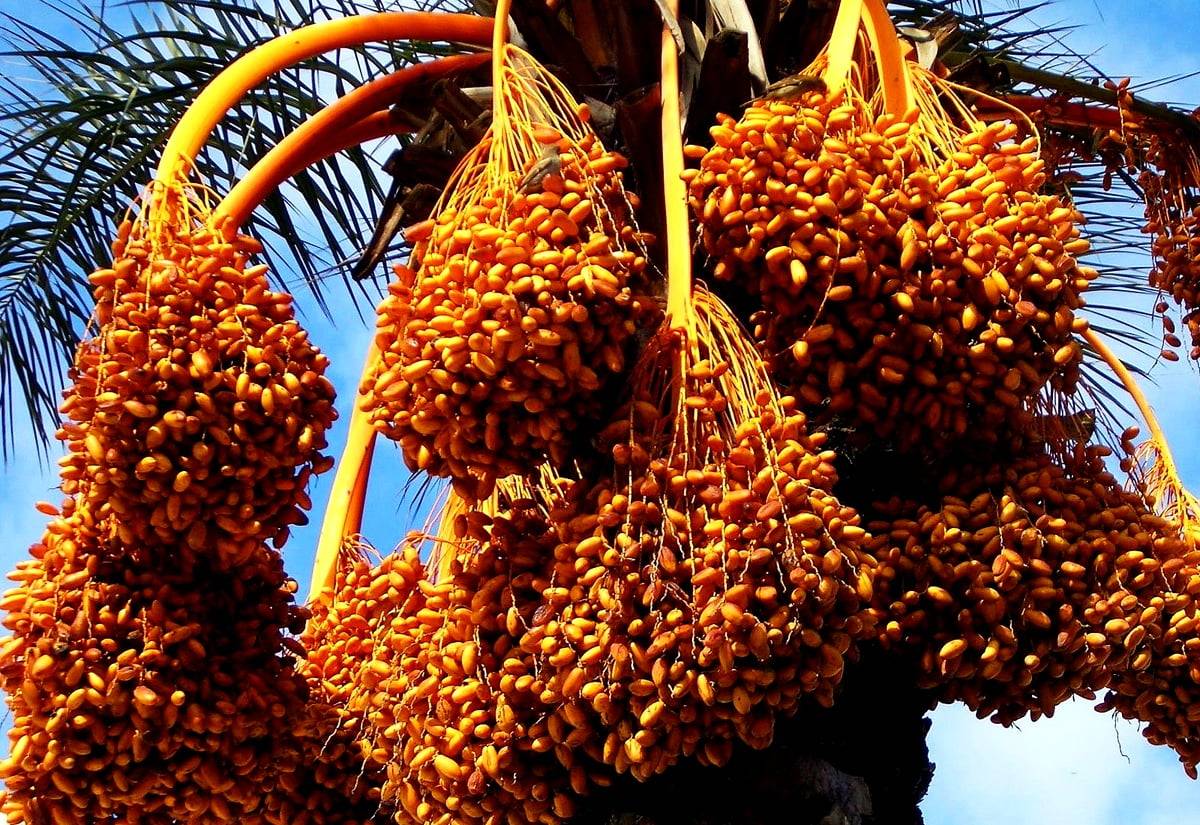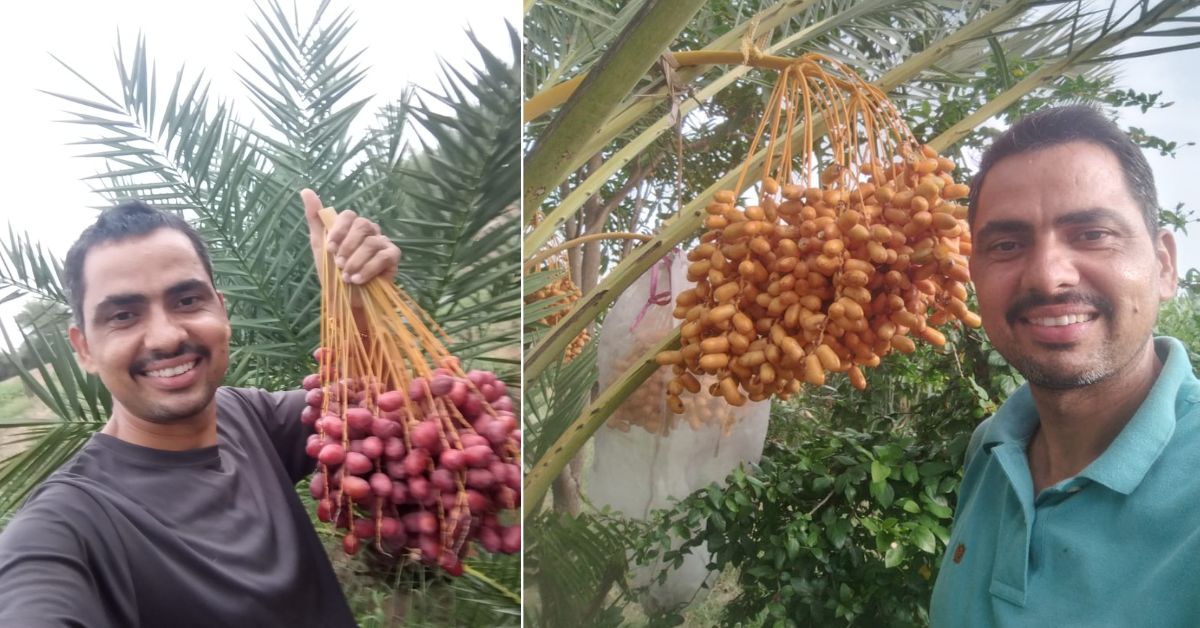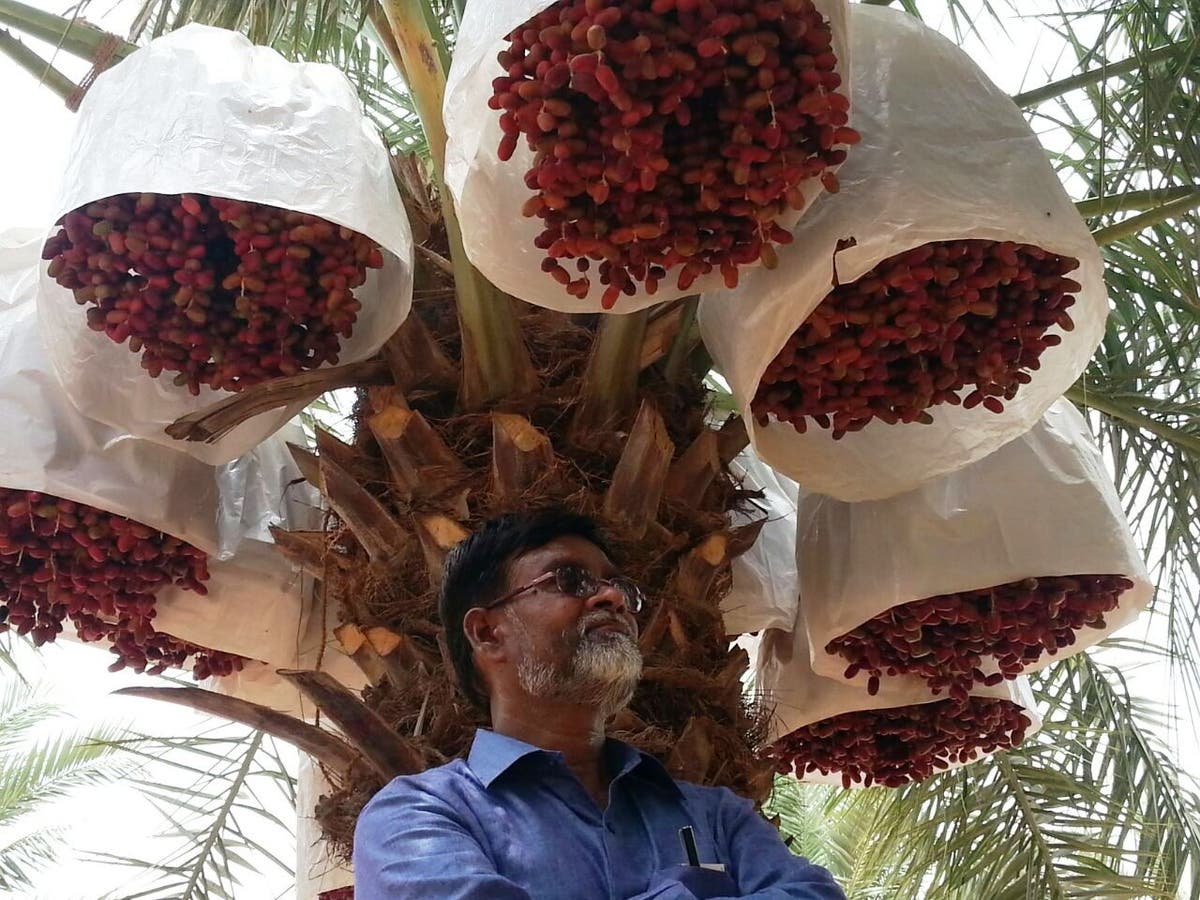The Barmer area of Rajasthan is the only area in India where Medjool Variety of Date Palm can be grown successfully. The total production of Date Palms is about 150 to 180 Tonnes per Year.
In the arid landscapes of Barmer, Rajasthan, date palms have emerged as a game-changer for local farmers. Traditionally reliant on crops that struggled to thrive in the harsh desert climate, many have turned to cultivating date palms, and the results have been remarkable.
Date palms are well-suited to the dry conditions of Barmer, requiring less water than many traditional crops. This adaptability makes them an ideal choice for farmers seeking sustainable agricultural practices. The ability to cultivate date palms not only provides a reliable source of income but also enhances soil quality and reduces desertification.
The introduction of date palms has significantly boosted the local economy. Farmers who once faced financial hardships are now enjoying increased yields and higher profits. The demand for dates, both domestically and internationally, has opened new markets, allowing farmers to expand their businesses and improve their livelihoods.
The success of date palm cultivation has also led to community development. With rising incomes, families can invest in education, healthcare, and infrastructure. As farmers share their knowledge and resources, a sense of collaboration and community spirit has flourished, further enhancing the region’s resilience.
Beyond economic gains, date palms contribute positively to the environment. They help combat soil erosion and improve water retention, creating a more sustainable ecosystem. The trees also provide shade and habitat for local wildlife, promoting biodiversity in the area.
The cultivation of date palms has truly transformed the fortunes of farmers in Barmer, Rajasthan. As they embrace this resilient crop, they are not only improving their economic stability but also fostering a sustainable future for their community. This remarkable shift highlights the power of agriculture to adapt and thrive, even in the most challenging environments.